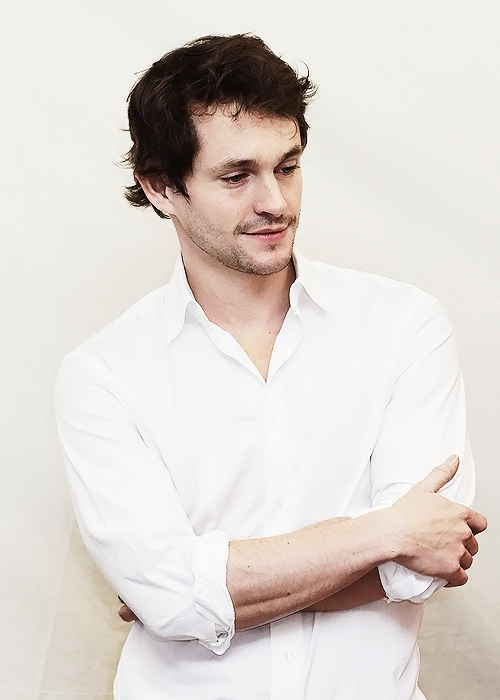
Still, we cherish the city, the morning; we hope, more than anything, for more. Heaven only knows why we love it so...
michael cunningham
name
birth
name
name
dob & age
birthplace
residence
Clarence Locke
(The Hon) Clarence Andrew Irving Pelham-Hastings
21 June 1978 & 40 years old
Kensington, London, England
The surname Pelham-Hastings is one that can be found in both Burke's Peerage and (until 1999 at least) the House of Lords, which is to say that the family was elevated from landed gentry to being created Baron Hastings in early 19th century, for services rendered for King and Empire during the Napoleonic Wars. They had a fairly illustrious century of it, moving into the heart of high society and getting in on being powerful players on the national landscape -- and then things started going gradually but steadily downhill, for the most banal of reasons behind such falls from grace: financial trouble, what else? Several generations of bad investments and imprudent expenditures later, they were barely maintaining a delicate balancing act in the earliest decades of the 20th century.
And then there came two World Wars -- which, in more ways than can be counted, signified the beginning of the end.
The country house was requisitioned by the army and returned to the family in a most disgraceful state; the cost of necessary repairs, coupled with the death duties imposed after the horribly-timed passing of the patriarch, threatened to torpedo the family's finances once and for all. Nevertheless, they held on valiantly for the better part of a decade -- until they could hold on no longer, and the house was torn down to staunch to the continual haemorrhaging of funds. It was the end of an era; it was also good riddance.
Such was the legacy that Clarence was born into. By the time of his birth, the family had made its peace with needing to hold down actual jobs that pay actual salaries, and adapted reasonably well to the lifestyles of upper-middle-class highly-educated professionals. There was disposable income enough for summer holidays in France, but the children were hardly born with silver spoons in their mouths, even when they were still raised with an undeniable amount of privilege. They could forego many of the trappings of aristocratic life, for instance, but they absolutely would not skimp on education, exorbitant public school tuition be damned!
(It must be said, however, that Clarence's parents certainly did not complain when he took home a Queen's Scholarship, which covered half his fees for his time at Westminster School.)
He was certainly always the most academically gifted of all three children, a tendency perhaps exacerbated by the fact that he was also a textbook middle child, who could not match older brother Sebastian's prowess on the rugby field and had no desire to compete with baby sister Roxanne for sheer sweet-natured lovability and so was content to be seen as "the smart one". As Clarence grew older, he also became known as "the artistic one" (because he became involved with the theatre department at school) and "the restless/flaky one" (because he desperately wanted to travel and despised the tedium of routine).
It seemed a no-brainer then, for him to take his top-notch A-levels to Cambridge to study languages, and then to take that degree and those skills into Her Majesty's Diplomatic Service, wherein he will have a respectable career and plenty of chances to see the world. Everything was going according to plan... until Clarence was spotted by an agent at a Footlights production (admittedly more for his cheekbones than for the merits of his acting) and ushered into a series of bewildering auditions. Before he knew it, he had made his professional acting debut in WILDE at age nineteen, propositioning Stephen Fry while wearing a bowler hat.
The thing was that Clarence did not even know if he wanted to act, having pinned so much of his young ambition on that dream of a diplomatic career. Acting was a hobby he greatly enjoyed, and if he was successful in it then it would offer much the same opportunities he valued most... but who was to say that he would succeed? And so he continued to dither (and continued to book tiny supporting roles, more on the merit of his look than objective evaluation of his talent) until one of his final auditions before heading off to Switzerland for his year abroad landed him a role in Julie Taymor's TITUS, which would be filming in Italy, certainly reachable within reasonable travel time. The timing was so strikingly serendipitous that it felt like a sign of some sort, which made the decision easy: he would finish his university education on a high note and then throw himself into an acting career wholeheartedly. Even if acting did not work out, this way he would not be bereft of career options.
Clarence need not have worried: after slogging through a slow start, the roles never really stopped coming in. His first taste of big-budget features came with HARRY POTTER AND THE CHAMBER OF SECRETS in 2002, though of his early roles, his most acclaimed and notable was without question the precociously confident Dakin in the hit West End play THE HISTORY BOYS. Then he had a career breakthrough just one year later, when he followed up a charmingly psychopathic turn in Woody Allen's MATCH POINT with less charming but arguably even more psychopathic roles in Christopher Nolan's BATMAN BEGINS and Wes Craven's RED EYE. Almost overnight, he found himself flooded with offers to play gentleman psychopaths and well-dressed sadists and villains who declaim their impressive intellects with cut-glass vowels. This would have been fine, since he does find these characters to be quite interesting to play, if he had not one day noticed that he sees practically no scripts for any other types of roles. Thus began the period of intense image rehabilitation, where he turned down lucrative offers from Hollywood to play villains and instead turned to the unexpected and off-beat. Anything to be able to have a professional career on his own terms.
SHERLOCK would mark another turning point in Clarence's career, and at a point where he had thoroughly soured on Hollywood and made an almost full-time return to UK, with a significant amount of his work being on the stage. This version of the titular detective was an insufferable genius who sought to be beyond human weaknesses like empathy and emotion. The role had been partly created with him in mind, and from day one he had felt a degree of intense protectiveness over the character, as one might over an old friend. The series has opened up new career opportunities and turned him into the object of fierce media scrutiny and intense fan devotion, both unnerving reactions in their own way. Still, if he had to be known for one role for the rest of his career, Sherlock Holmes is without a doubt the one and only possibility.
Currently, he juggles a bafflingly intense internet fanbase, incessant media scrutiny, a bevy of tinhat theories about what his difficult-to-pin-down sexuality might mean for LGBTQ representation, and a white-hot career this close to cementing his place on the A list (as long as he stays close with Marvel and moves away from the too-offbeat choices). All in a day's work.
father
mother
brother
sister
sister-in-law
nephew
nephew
Oscar Pelham-Hastings, 13
James Pelham-Hastings, 8



